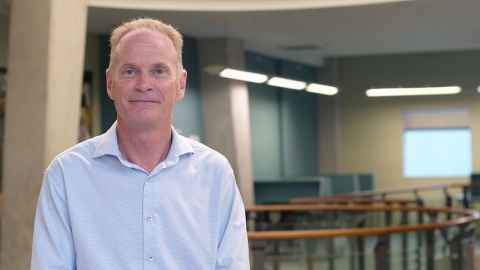Budget boost: promising but could do better
08 May 2019
Opinion: The four-year Budget boost of $95 million into education is a step in the right direction, writes Associate Professor Mark Barrow, but he also has some concerns.

It at least indicates the Government recognises it has a recruiting problem. Among the various measures announced, I welcome an increase in the Student Achievement Component (SAC) funding for Initial Teacher Education (ITE) providers.
As all providers will be subject to considerable additional cost because of the extra requirements the Teaching Council of Aotearoa NZ is loading on to them, this is heartening, and means that providers will only be covering newly-imposed costs.
The Council has imposed these costs with no evidence to back up their usefulness. For example, there is no evidence that the extra requirements being put in the way of potential students getting into ITE programmes will add any value.
Nor is there any credible evidence that the additional practicum time now required, at considerable added cost for institutions, partner schools and centres and our students, will add any value to the preparation of pre-service teachers.
I also wonder why the minister places so much faith in boutique solutions such as employment-based teacher training programmes to solve problems in secondary teacher supply.
He has announced possible new schemes and increased the places into the existing Teach First NZ programme (TFNZ). No one can argue that the TFNZ programme is not attractive to student teachers, but that’s because they will be paid throughout their training programme; an appealing prospect for anyone who can’t afford another year without earning.
It seems to me that the Government would be better to address the chronic teacher supply problem by filling the spaces in existing university programmes.
However, these schemes and programmes are costly to the taxpayer. As well as the funding the Government is paying the Private Training Establishment that provides the TFNZ qualification, by the time they qualify, students in the programme will have cost the taxpayer two years of a non-certificated teacher's salary.
This compares to our pre-service teachers, who work to support themselves through their teacher education programme or if they are eligible, may have been able to get a meagre student allowance.
More employment-based teacher education programmes will also mean more expert school teachers taken out of the classroom to mentor pre-service teachers. In these cases the ITE student is normally mentored by someone who is not an expert in preparing people to teach, while at the same time denying the classroom learners the attention of a well-trained person who is an expert in teaching them.
In essence, employment-based teacher education programmes replace an expert classroom teacher with an untrained teacher-in-training. And if these places are to be in decile 1-3 schools, as the recent announcement suggests, these untrained teachers are doing their training on the most vulnerable learners in the New Zealand system.
In the meantime, while the welcome additional scholarships on offer to those entering university and polytechnic programmes would certainly help to fill places, only some students will get them, and they will never amount to a salary such as that paid to students in employment-based programmes.
The Tertiary Education Commission pays all final-year medical students a stipend. Why is this a good idea for medical students but not for teacher trainees? Compare the positions: medical schools have queues of people wanting to get into their programmes and are turning away eminently qualified people, so the stipend is not there to increase the numbers. Every domestic, New Zealand-trained doctor is all but guaranteed a job on graduation, and a highly paid one at that.
By contrast, secondary teacher education students are asked to pay to enter a one-year programme following a first degree, support themselves through the programme and can only hope they will get a permanent, modestly paid job at the end of it.
It seems to me that the Government would be better to address the chronic teacher supply problem by filling the spaces in existing university programmes. University of Auckland students in our intensive and highly regarded secondary teacher programme are eligible for provisional registration as teachers after ten months, compared to two years in the current employment-based programme.
They won’t be costing the taxpayer as much and they won’t be taking trained teachers away from vulnerable students, where they are desperately needed. And yet the Government continues to ignore this solution as an obvious answer to its supply problem.
Associate Professor Mark Barrow is the Dean of the Faculty of Education and Social Work at the University of Auckland.
This article reflects the opinions of the author and not necessarily those of the University of Auckland.
Used with permission from Education Central, Budget Boost: promising but could do better published on 6 May 2019.